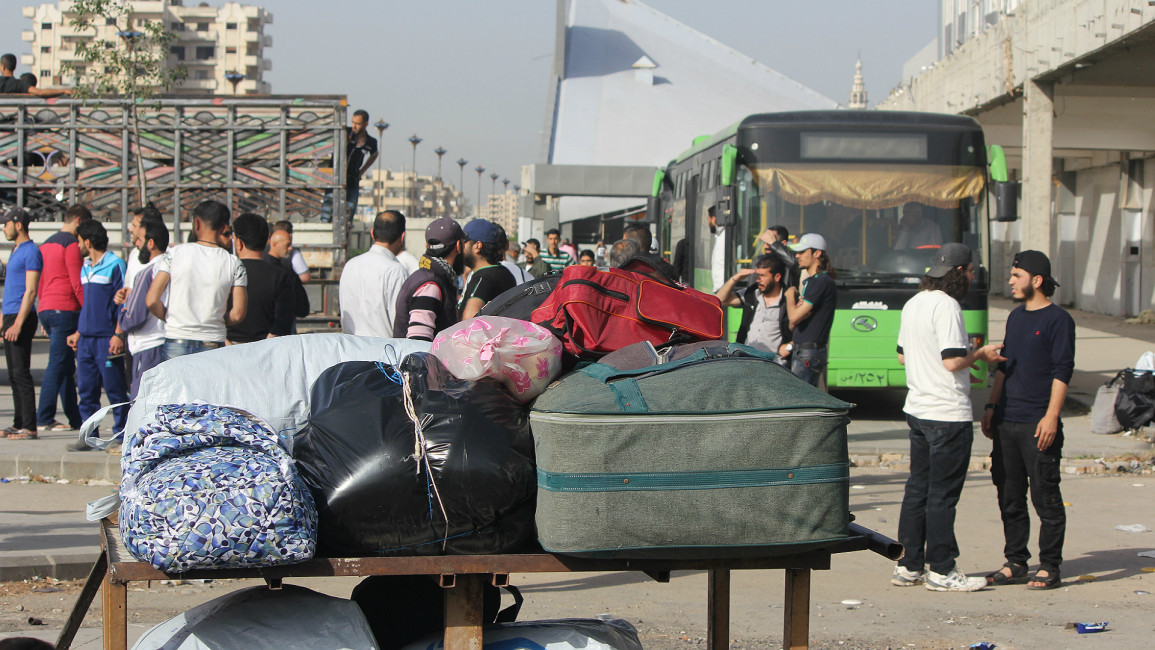First evacuations take place from Syria's rebel district Barzeh
Syrian rebels and their families began leaving a northern district of the capital on Monday, state television said, in the first evacuations from Damascus in the country's six-year war.
"Armed men and some of their families have begun leaving Barzeh on 40 buses heading towards northern Syria," the channel said in a news alert.
It said the evacuations would continue for five days, but that rebel fighters who chose to stay could do so if they register with the government.
The channel did not specify how many people were expected to leave, but the Syrian Observatory for Human Rights monitor said up to 1,500 people – mostly rebels – would leave Barzeh on Monday and head to the northwest province of Idlib.
The Barzeh evacuation deal was struck late Sunday night, and dozens of people had gathered in the district from the morning.
An AFP photographer in Barzeh saw rebel fighters carrying light weapons looking on as children and women in brightly-coloured headscarves pulled shabby suitcases and duffel bags.
 |
Assad's government controls all but six districts of Damascus: Barzeh, Qabun, Jobar, Tishrin, Tadamun, and Yarmouk |  |
A source from the pro-government National Defence Forces said rebel fighters would be allowed to take their "personal weapons" with them.
Negotiations were ongoing for a similar deal in the district of Qabun, in Damascus's northeast, which has seen fierce shelling for weeks by forces loyal to President Bashar al-Assad.
The deal follows Saturday's start of a "de-escalation" process put in place by regime allies Russia and Iran and rebel-backer Turkey in four regions of Syria – but not the capital itself.
Assad's government controls all but six districts of Damascus: Barzeh, Qabun, Jobar, Tishrin, Tadamun, and Yarmouk.
The Syrian conflict began when the Baath regime, in power since 1963 and led by President Bashar al-Assad, responded with military force to peaceful protests demanding democratic reforms during the Arab Spring wave of uprisings, triggering an armed rebellion fuelled by mass defections from the Syrian army.
According to independent monitors, hundreds of thousands of civilians have been killed in the war, mostly by the regime and its powerful allies, and millions have been displaced both inside and outside of Syria.
The brutal tactics pursued mainly by the regime, which have included the use of chemical weapons, sieges, mass executions and torture against civilians have led to war crimes investigations.


![President Pezeshkian has denounced Israel's attacks on Lebanon [Getty]](/sites/default/files/styles/image_684x385/public/2173482924.jpeg?h=a5f2f23a&itok=q3evVtko)



 Follow the Middle East's top stories in English at The New Arab on Google News
Follow the Middle East's top stories in English at The New Arab on Google News


